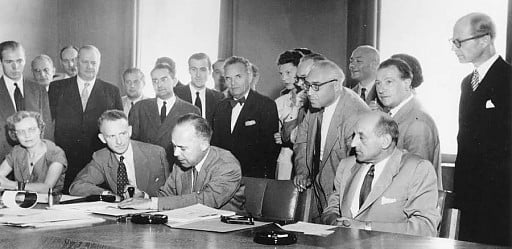I'm not entirely sure people understand what it is to be granted asylum. It is protection.
I'm confident that the majority of people understand perfectly, the concept of asylum.
But what you don't appear to appreciate is that asylum is granted by the country in which a refugee applies. That country does not have a template handed to it, by the UN, on which they make their assessments or decisions. Their decisions may well be affected by their own beliefs and policies.
There can be no, "please send him back" request, which could be applied to a country that is next door but one vs one that is up the other end of the street, so to speak.
For instance, suppose a Chinese murderer escaped to UK and claimed asylum on the basis that China exercises capital punishment. I am sure that UK would not grant asylum absolutely, they would seek assurances from China that capital punishment would not be applied in this instance. Thus an agreement is reached and the Chinese national is extradited to China. But if China then changes its mind and breaks an international agreement, there's nowt that UK could (or probably would) do.
And UK have 'history' of granting extradition requests to 'friendly' countries based on flimsy and suspect charges: Julian Assange comes to mind.
The core principle is non-refoulement, which asserts that a refugee should not be returned to a country where they face serious threats to their life or freedom. This is now considered a rule of customary international law.
The 1951 Refugee Convention and its 1967 Protocol are the key legal documents that form the basis of our (UNHCR's) work. UNHCR serves as the 'guardian' of the 1951 Convention and its 1967 Protocol.

www.unhcr.org
The convention clearly intends to avoid the need for people to travel thousands of miles at the hands of people traffickers.
The UN Convention gives no guidance, nor even mentions the distance travelled for people to seek asylum That is purely and simply your assumption.
The UNHCR seeks to protect refugees, migrants, people trafficked and any person who participates in 'people movement' The Charter does seek to differentiate any status on person while they are 'on the move'. Moreover, it seeks protection for people being smuggled. (NB, in general people smugglers intent to 'smuggle' people illegally into a country.) Arriving and claiming asylum is not attempting to enter a country illegally.
So please stop conflating the two.
People traffickers are criminals, the UN convention does not protect such criminals.
If the global community agreed quotas based on population per /square km or financial ability to support and a claimant could not guarantee they would remain in the country they chose, then a lot of the asylum economic migration would be replaced with illegal immigration.
If the global community agreed quotas it would make little difference to whether asylum seekers are granted asylum in their country of choice.
That is a fundamental freedom enshrined in the Convention.
Genuine claimants would not care as long as they were somewhere safe.
The hardest part is escaping the country of persecution!
People want to come to the UK for better economic prospects.
That applies equally to any developed country. UK has no monopoly on 'better economic prospects'.
They understand that if they declare themselves a homosexual christian from a muslim country, it would give them the ability to claim. Traffickers and do-gooders give them advice on how defeat the system.
I'm sure we all seek advice from whatever quarter is prepared to offer it. Asylum seekers do not have extra special powers that suggests they don't need advice.


